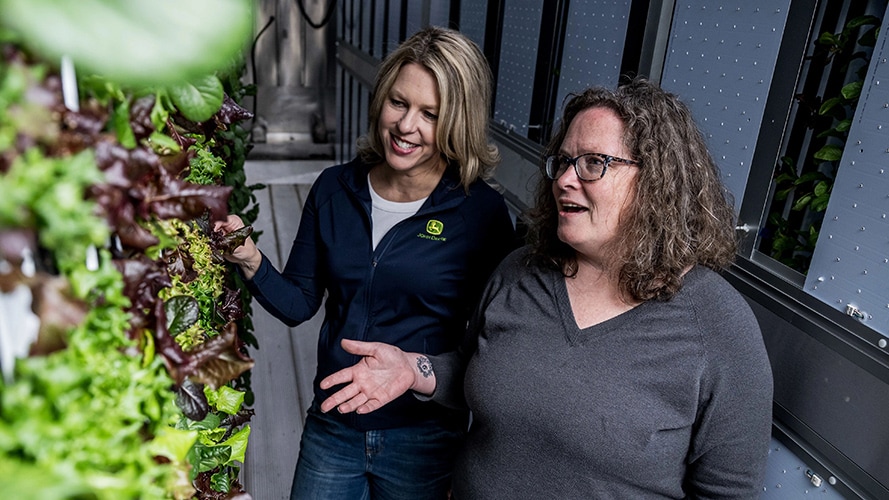Hydroponic Farming Provides Year-round Fresh Food for Refugees
Tapestry Farms, a pioneer in redefining the farming landscape, provides a unique approach to farming in the Midwest. Their solution requires no land, only a 320-square-foot container.

Why it matters: Farming year-round is not an option in the Midwest. The harsh winter weather limits the ability to grow and harvest crops. When combined with the rising cost of food, many families struggle to access fresh fruits and vegetables.
“With food costs increasing, and more households in need, communities need to innovate a new approach to getting food,” said Laura Eberlin, manager for global citizenship and vice president of the John Deere Foundation.
The solution: With the support of the John Deere Foundation, Tapestry Farms installed a compact hydroponics farming unit, known as a "Freight Farm," in the parking lot of the Quad City Botanical Center in Rock Island, Illinois. The goal of the urban farm is to cater to local refugee families and support the Riverbend Food Bank.
The impact: Ann McGlynn, executive director of Tapestry Farms, said, “This container will give our organization the opportunity to double, or possibly triple, the amount of produce we can grow each year.”
McGlynn added, “While this is definitely not the first hydroponics project in the Quad Cities. We believe that what makes this one stand out is that the food grown in this container will support our nonprofit operations and feed people who face hunger in our community.”